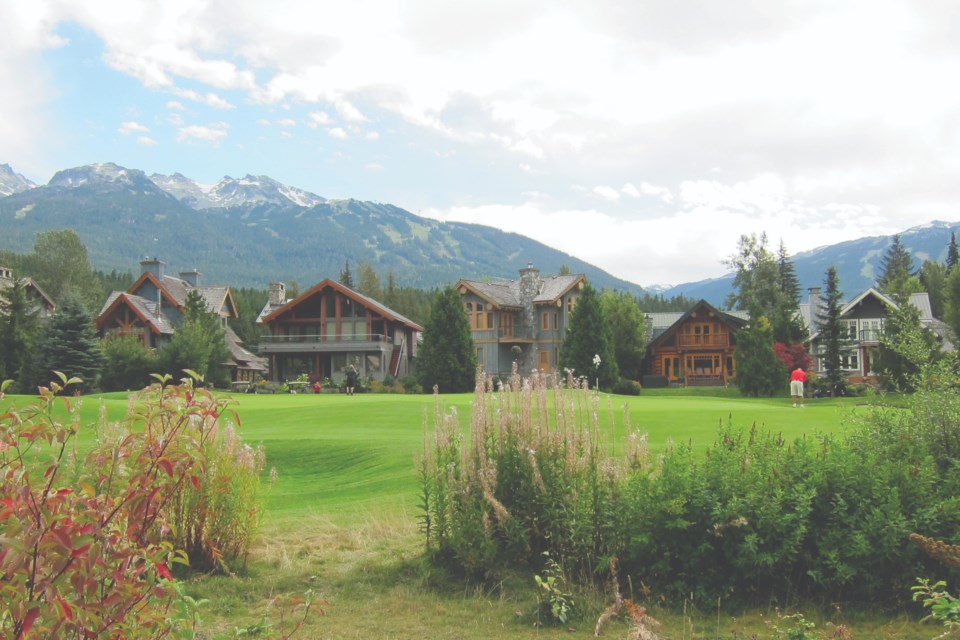In its budget released April 7, the Canadian government announced its intentions to temporarily ban new foreign ownership in housing in an attempt to help Canadians purchase homes—but the new measures aren’t likely to impact Whistler.
Currently, the ban won’t apply to recreational properties, which are defined as “land in a rural area that is part of a parcel used for overnight commercial accommodation that exists predominantly to facilitate specific outdoor recreational activities,” according to the BC Assessment Authority.
This means in practice that if a house is used primarily as a bed and breakfast or secondary accommodation by foreign buyers, these new rules may not be applied. However, details and possible loopholes are still to be finalized, according to Patrick Weiler, Liberal MP for the Sea to Sky.
“The details of that are still to be determined, but presumably, [it would be] kind of similar to the [provincial] speculation tax, which doesn’t apply to Whistler. You would look at recreational properties from a similar light,” Weiler said.
“In the budget here, we’ve announced our intentions to do this, and what’s going to happen from henceforward is we’re going to have a consultation on that. So we’ll be connecting with folks in Whistler and across the country that have a different perspective to bring to bear on this.”
Whistler is one of the top destinations for foreign ownership in Canada, with non-residents—people whose primary residence is outside of Canada—owning about 16 per cent of the properties in the resort, according to 2018 data from Statistics Canada.
This puts Whistler in second place behind only the Mountain Resort Municipality of Sun Peaks (18 per cent) for the largest amount of properties owned by non-resident foreigners.
Of all the issues in the Sea to Sky, housing is the most pressing, and it plays a large role in Canada’s 2022 budget, Weiler said.
“One of the top three themes, I would say, for the budget is on housing. I think Whistler is not unique in seeing the housing shortage, the housing crisis, but it’s certainly more acute just given how desirable of a place it is to live,” Weiler said.
Since Weiler’s Liberal Party of Canada, led by Prime Minister Justin Trudeau, took power in 2015, housing prices in Canada have increased by 85 per cent. In the Resort Municipality of Whistler, the average cost for a single-family dwelling topped just over $4 million per home in 2021 and continues to rise.
The reasons behind the extreme rise in housing prices are complex. A mixture of blind bidding, foreign ownership, population growth and a lack of available housing stock have all contributed to a highly inflated market.
With its budget, the federal government has created a suite of plans and investments it is hoping will help cool the national housing market and make housing more accessible to younger people.
“That’s one of the centrepieces of this budget; there’s over $10 billion in investments into affordable housing,” Weiler said.
The programs put forward to help with the housing crisis include investing in cooperatives, creating a first-time home savings account, increasing the first-time homebuyer’s credit, creating rent-to-own programs, and the aforementioned two-year ban on foreign ownership.
“We’re looking to double the amount of home construction over the next 10 years. So that’s a pretty lofty goal,” Weiler said.
“The way that we’re going to be able to do that is by working very closely with municipalities to create a new fund called the Housing Accelerator Fund, which will allow municipalities that are going to build in more density and use inclusionary zoning to get more capacity, whether that’s urban planners or for folks that are going to be doing building permit approvals.”
Despite its focus on housing, the budget doesn’t get a passing grade in that respect, according to Andrey Pavlov, a professor of finance at Simon Fraser University’s Beedie School of Business.
What Canada needs is to eliminate obstacles to new supply put in place by municipal and provincial governments, Pavlov said.
“I realize we’re talking about a federal budget, but instead of throwing money at the problem, the federal government can take steps to limit the power provincial and municipal governments have to delay and stop new housing,” he said, adding that the ban on foreign buyers is a separate matter.
“Whistler, being a resort municipality, is of course not subject to the [B.C. foreign buyer] tax, and rightfully so. Much of the real estate in places like Whistler is for investment purposes (rather than owner-occupied) and, as such, there’s no problem if a foreigner buys it. But other than that, the proportion of foreign buyers in the housing market designed for owner-occupiers is very small.”
Learn more about the federal budget at budget.gc.ca.
-With files from Braden Dupuis




